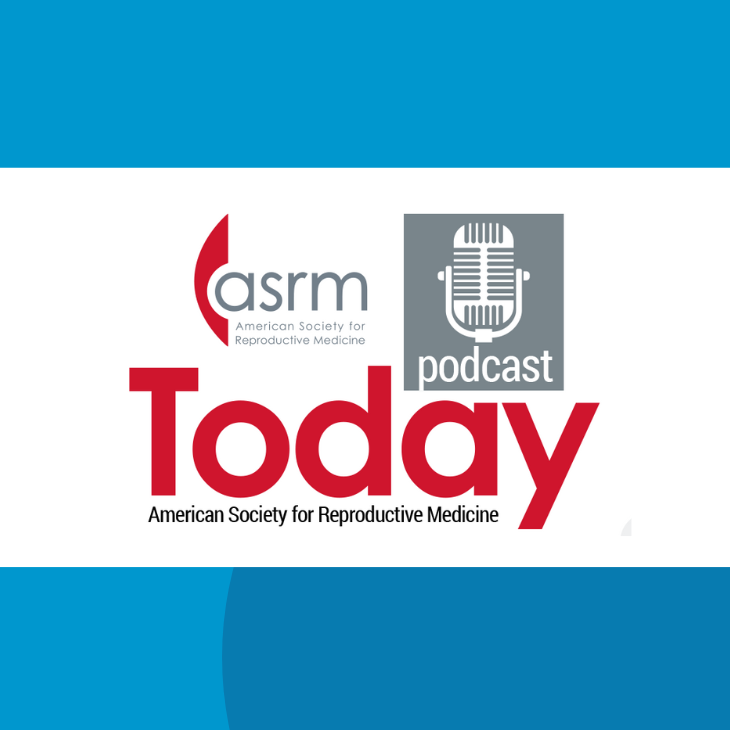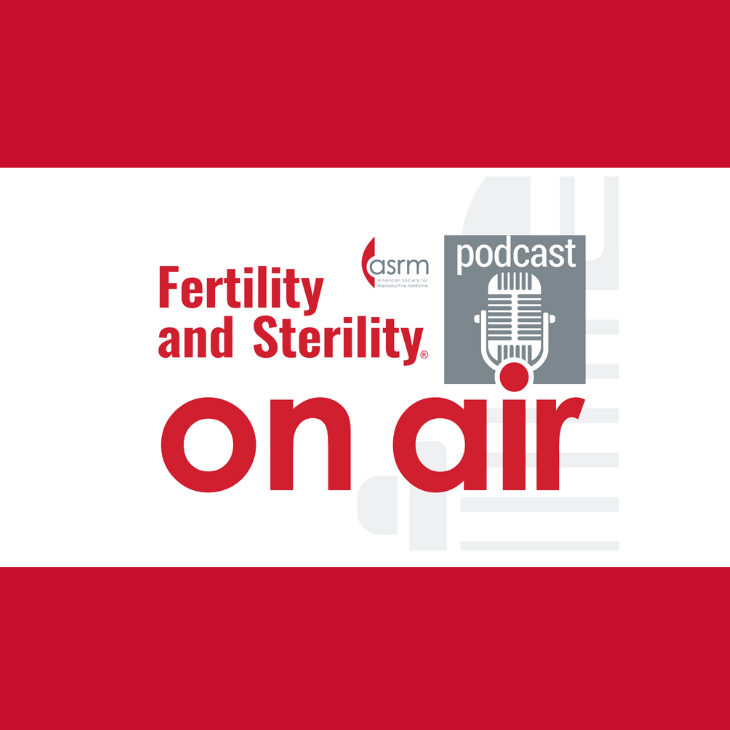
Transcript
Hi, everybody, and welcome to the podcast. I am very excited about today's program because we have a dear friend, Asim Jani, who is a physician, a master's of public health, and a fellow of the American College of Physicians. Today's topic is so timely and so important for all of you to gain this information, and we're very fortunate to have an expert.
Dr. Jani is a consultant and medical epidemiologist. His specialties are in internal medicine, infectious diseases, and public health, and general preventive medicine. He was at the CDC for 10 years, including being the director of the CDC Preventive Medicine Residency and Fellowship.
He's a clinician, educator, and public health physician in Central Florida for 15 years, and has adjunct faculty appointments at both the University of South Florida and Florida State University Colleges of Medicine. Dr. Jani, welcome to the podcast. Thank you so much, Mark.
Well, lots of information that we have today, and I just want to get right to it. Vaccinations, we're not going to go right into COVID, but obviously that's going to be a large section of what we talk about. But as an OB-GYN, we screen our patients if we're fortunate enough to get them before they conceive, and the most common viruses that we check for are rubella, which is the German measles, varicella, which is the chickenpox, and, you know, you can make an argument for the measles, although that's not routinely screened for all people.
Others that we do are for tetanus, we should screen for COVID now, and of course the flu. So I guess the question that I initially had is, in getting these vaccines, the ones for rubella and the measles is called MMR, and then for varicella. So why are we waiting when we get these vaccines? It's advised to wait, some sites say three months, some sites say one month, and not the flu.
You can get the flu vaccine during pregnancy and COVID vaccine during pregnancy. So what's the difference between these viruses? Yeah, absolutely. It's a great question.
So, you know that we have many different categories of vaccine products, they're made in different ways. The vast majority of vaccines are what we call inactivated, where basically we take a portion of the virus, perhaps the whole virus or a partial part of the virus, and we essentially treat it with a chemical that is otherwise very safe in minuscule amounts, but it essentially deactivates that virus from really causing infection. There are a few vaccines, like you mentioned, the MMR vaccine, the varicella vaccine, even influenza has one type of an influenza vaccine that is what we call live, and these are live viral vaccines that essentially can have the potential to cause some symptoms of infection, and in patients who are otherwise having immune system issues or are pregnant, the consideration is that you ideally want to vaccinate pregnant people, certainly well before they conceive.
Now that is on the basis of the fact that generally when they did studies, they found that within a period of about three months after natural infection or exposure to the virus, there may be some evidence that, you know, there was no evidence really that pregnant women were in any way harmed, but to be conservative, you know, people said that, okay, why don't we just give these vaccines and then wait for a month before conception, and if in fact during that period of time someone did not know, right, they got pregnant, they didn't know that they got it, these are theoretical risks, so they are not necessarily borne out in any major data that would say that there's harm. Right, so right now during pregnancy, you know, the inadvertent exposures that people have gotten, no problems with the MMR or the chickenpox, right? Inadvertent exposures, right. Ideally what you want to do is you want to plan, if you can, to make sure that you at least wait, again, four weeks is what the CDC has said in the literature, and this goes back to almost, gosh, you know, papers back in 2001, so this is like 20-year-old information.
That said, the important thing that also we should know is that people are really, really, they should get vaccines during pregnancy, vast majority. Yeah, yeah, and the important thing is that for patients to realize that without being vaccinated, if they ever got, now it's not common, but if they ever got rubella during pregnancy, it can actually cause baby to have birth defects, including heart problems, vision, deafness, intellectual disability, low birth weight, so there's a congenital rubella syndrome, so it is important for people that are interested in getting pregnant, in addition to being on, of course, folic acid to reduce the risk of spina bifida and neural tube defects, but I also want to touch base with chickenpox is that mom can get something called varicella pneumonia, and that can be actually life-threatening, so there's a congenital varicella syndrome, which is chickenpox, and that can cause serious birth defects, scars in the skin, problems with the arms, legs, brains, and eyes, so we don't want to take, you know, we don't want to be cavalier about these particular problems, and measles can actually cause problems during pregnancy as well, like miscarriage and stillbirth, so why is it safe, Asim, to have the flu vaccine? We'll talk about COVID separately, but why is it safe for the flu vaccine? Well, so influenza vaccine is incredibly effective. We know that the risks that pregnant women have when they, in fact, get the flu are serious, right? We know that there's an increased susceptibility to complications.
They can have increased risk of hospitalization. As you know, there's a, you know, there's even some risk of spontaneous abortion and preterm labor, low birth weights, infants, so there's risks for natural infection, and what we know is that the inactivated influenza vaccine, or IIV, can be really administered to a woman anytime during the time that they are pregnant. The ideal situation is that you kind of look at vaccines in general as to whether or not they're going to prevent the disease burden that generally happens early to the mom, or is it really to the baby, right, and so that'll determine sort of the timing of it, so we're going to talk about perhaps pertussis in a minute, but the idea that infants, right, can be at very high risk for pertussis complications suggests that you push the vaccination for Tdap, for example, farther down the road, you know, 27 to 32 weeks, et cetera, whereas influenza, you certainly like, in a sense, COVID.
These are situations that women can get into trouble throughout. I think that there's really good data that influenza vaccine can reduce hospitalization risk by almost 40, 50 percent. And safe for during pregnancy, you know, and the American College of OBGYN is advising all pregnant women that they should receive tetanus, reduce the diphtheria toxoid, and the pertussis, so the DTAP vaccine is also very, very important.
And a select population of pregnant women should get pneumococcal or meningococcal as well as hepatitis A and B. This is based on the individual exposures and risk factors, but, you know, pregnancy is an immunocompromised state, and I guess with that statement, which makes them more susceptible to disease, we should probably move on to the elephant in the room, as it were, and talk about COVID. The most recent data right now is that only close to a third of pregnant women have been actually vaccinated against COVID. Symptomatic pregnant women with COVID have about a 70 percent increased risk of death compared to non-pregnant women.
So, you know, what I counsel my patients on is that COVID during pregnancy has a significantly higher risk of hospitalization, ICU admission, ventilator, and death. And so the topic of today's conversation being vaccinations, infertility, and pregnancy. The viruses that we've talked about so far have not been associated with infertility, of course, although, as I mentioned, getting these viruses could increase the risk of miscarriage and stillbirth, so you want to be protected against them.
But, you know, roughly half or maybe a little bit more of the population being vaccinated against COVID, it's a lot of people that are not, and a lot of pregnant women that are not. So what can we tell them today? And I know that you keep up on this literature and attend webinars, and what are we telling our patients? What's the latest information? And to put this to rest, and I'll say right now that there's absolutely no credible evidence for any risk of the vaccine for COVID to cause infertility or miscarriage. So speak about what you know about COVID vaccine for fertility purposes and pregnancy assay.
Yeah, absolutely. Great question. So, you know, first of all, even as of today, we know based on the latest information in the last 24 hours that boosters now have been recommended and certainly promoted to all people who have been previously vaccinated.
So let's talk about COVID vaccine a little bit. As you said, COVID vaccine is incredibly safe and highly effective. We have studies that suggest that we have up to 95% effectiveness across these different types of vaccines that we have available.
Admittedly, a lot of the information that came out was even before Delta, which is the circulating virus right now. But that's holding a ground, you know. And so these vaccines are highly effective, some of the most effective vaccines that we have, in fact.
They are what we call mRNA vaccine, or the Johnson & Johnson is a different type of vaccine. Either way, these are not live viral vaccines. The vaccines cannot give you the infection, number one.
They cannot cause problems with infertility. They can be given with other vaccines, that they can be simultaneously given, especially even if you have gladly gotten a vaccine, another type of vaccine in the prior 14 days, including influenza and Tdap, for example. There are situations in which after some six months of getting either of the Pfizer or the BioNTech or the Moderna vaccines, you can get a booster now and you don't have to be in some special risk group.
The same applies for the situation with respect to the Johnson & Johnson vaccine. You can also get a booster. The important thing with a COVID vaccine in pregnancy is that, as you know, Mark, there have been incredibly well-done studies across dozens and dozens of countries, and especially even the United States, that suggest that pregnant women are at such high risk for complications.
But right now we know that based on routine surveillance, which means tracking the complications, there is no increased risk of safety concerns or miscarriage, no issues around infertility. These mRNA vaccines cannot integrate into your DNA or in your genetics and cause problems that way. We know that the vaccine antibodies that are produced across the placenta, they protect the infant, especially if you happen to get it closer to the time of delivery, then there's even greater maternal antibodies that are sort of transferred to the infant via the placenta and of course via the cord.
And then ultimately, we know that vaccine antibodies are present in breast milk. So it's a safe vaccine even from that. Is there any advantage to actually waiting for the pregnancy to get antibodies that would be safer to cross over to baby, or once they get antibodies pre-pregnancy, the baby is going to be protected? I think so.
I think the logic right now is not necessarily to wait until the third trimester. The idea is to just give it during the course of the pregnancy, because we know that there's a maternal risk, right? If you have increased risk of hospitalizations and deaths and complications, preeclampsia. So you want to protect the mom as well as you want to protect the baby.
And we know that based on the antibody sustainability of these vaccines, they are present for months. So I think that if a pregnant woman gets the vaccine during their pregnancy earlier, they will still be able to benefit the child. Or pre-pregnancy.
So, you know, my last question that I have for you Racine is that, is there realistically any indication or contraindication for someone to not get the COVID vaccine in your understanding of the disease today? So there are very rare situations in which people have had prior severe reactions to any components specifically of the vaccine. These are very simple vaccines, but if there are reactions to portions of the vaccine, those are what we call contraindications. Those are very, very rare.
And that would be, there would be really very little way to sort of know. People have had reactions to the mRNA vaccines of what we call an anaphylaxis. And that's because of some of the preservatives or the chemicals that are present to sort of, you know, make sure that the vaccine is stable.
But I would say there are no contraindications. These are incredibly effective vaccines. And I think people should be, we should take full advantage.
The other thing is that there are some concerns legitimately about so quote neurological risks or myocarditis or infection or inflammation of the heart muscle. Again, if somebody has had a prior condition in which some of those diseases have been present, then they can talk with their doctor about the relative risks of the vaccines. But again, these vaccine adverse events are extremely rare, very rare.
They're happening in numbers of tens or twenties among millions of vaccine doses. So to summarize, of course, the COVID vaccine, absolutely no evidence that it causes infertility or complications in pregnancy. And if anything, of course, we're seeing that it dramatically reduces the risk of harm to mom and baby.
What we didn't talk about, Asim, just briefly is the risk to baby. How are these babies doing when mom gets COVID during pregnancy and particularly symptomatic? Right. So unlike other diseases like pertussis, where infants can actually get really, or influenza, where they can really get ill, in general, we know that the overall morbidity and mortality to children has been extremely low.
That said, with the increased transmission of Delta variant, there have been an unprecedented overall number of hospitalizations with kids, especially five of ages five and up. Now we fortunately have the vaccine to protect them as well. So I don't think that the risk to infants, per se, is of any serious magnitude.
But that said, we don't want children to be spreaders. And a lot of times they are often asymptomatic, you know, spreaders of virus to others. Well, Asim, you know, we could just keep talking and talking about COVID and vaccinations, such an important topic for our country and the world.
And I thank you for the time that you took out of your day to meet with us. I've been speaking with Dr. Asim Jani, who is not only a dear friend, but he is an infectious disease and medical epidemiologist specialist who has provided us with tremendous insights over the need for vaccinations for the diseases prior to pregnancy. Particularly, we talked about rubella, varicella, even measles, but tetanus, and of course, the flu and COVID.
Please speak with your OBGYN if you are interested in getting pregnant to protect you and baby. So I thank you for listening. And until next time, this is Dr. Mark Trolice.
Take care. Thank you. The information and opinions expressed in this podcast do not necessarily reflect those of ASRM and its affiliates.
These are provided as a source of general information and are not a substitute for consultation with a physician.
For more information about the Society for Assisted Reproductive Technology, visit our website at https://www.sart.org
Have a topic you'd like to hear? Tell Us!
Subscribe to the SART Fertility Experts Podcast on iTunes, Spotify, Google Play, or your favorite Podcast catcher.
Visit the podcast website and Start With SART!
SART Fertility Experts is part of the ASRM Family of Podcasts. Subscribe Now so you don't miss an episode!
SART Fertility Experts Podcast
SART Fertility Experts is an educational project of the Society for Assisted Reproductive Technology, this series is designed to provide up to date information about a variety of topics related to fertility testing and treatment such as IVF.
SART Fertility Experts - Military Families and Fertility
Active-duty individuals in the military sometimes face unique circumstances when seeking fertility care. Learn more with a former military fertility physician.
SART Fertility Experts - Q&A on Infertility
Infertility can create many questions for a patient. Listen to common questions and answers about infertility, egg freezing, and genetic testing.
SART Fertility Experts - Vanquishing Multiples
Learn how a variety of factors such as geography, race, and the availability of comprehensive infertility mandates affect access to effective infertility treatment.
SART Fertility Experts - Global Access to IVF and the Status of Women
Around the world, there are vast differences in the number of IVF cycles performed per capita. Learn why these differences exist.Vaccination
Find a Health Professional













